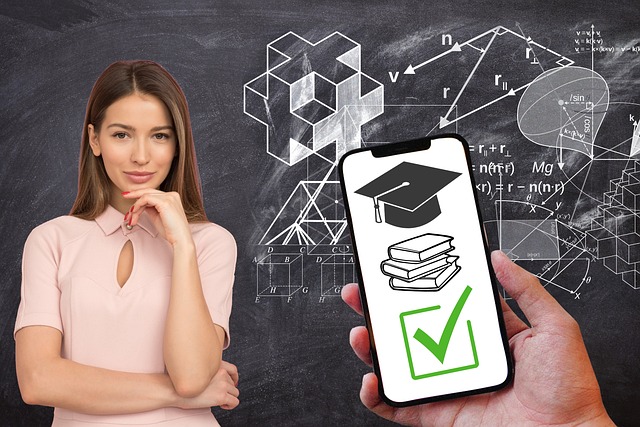
The Transformative Role of ChatGPT in Education
Updated at : 16 Mar, 2024 | Category: business
The Transformative Role of ChatGPT in Education
In the dynamic landscape of education, technology continues to play an increasingly pivotal role in shaping teaching and learning experiences. Among the latest advancements in this realm is the emergence of ChatGPT, a revolutionary conversational AI model developed by OpenAI. In this article, we delve into the transformative potential of ChatGPT in education, exploring its various applications and implications for learners and educators alike.
1. Enhanced Tutoring and Personalized Learning:
ChatGPT holds immense promise in the realm of tutoring and personalized learning. With its natural language processing capabilities, ChatGPT can interact with students in a conversational manner, providing real-time feedback, explanations, and assistance across a wide array of subjects and topics. By tailoring responses to individual learning styles and pacing, ChatGPT can facilitate personalized learning experiences that cater to the unique needs and preferences of each learner.
2. 24/7 Accessibility and Support:
One of the significant advantages of ChatGPT in education is its accessibility and availability round the clock. Unlike human tutors or instructors who may have limited availability, ChatGPT can provide support and guidance to students anytime, anywhere. This accessibility ensures that students have access to educational resources and assistance whenever they need it, thereby fostering continuous learning and academic support beyond traditional classroom hours.

3. Language Learning and Communication Skills:
ChatGPT's language generation capabilities make it an invaluable tool for language learning and improving communication skills. Through interactive conversations and language practice sessions, students can engage with ChatGPT to enhance their vocabulary, grammar, and fluency in various languages. Moreover, ChatGPT can simulate real-world conversational scenarios, providing students with opportunities to practice and refine their communication skills in a supportive and non-judgmental environment.
4. Assessment and Feedback:
ChatGPT can also play a significant role in the assessment and feedback process within education. By analyzing student responses to questions or prompts, ChatGPT can provide immediate feedback, identify areas of strength and weakness, and offer tailored recommendations for improvement. This real-time assessment and feedback mechanism not only saves educators time but also enables students to receive timely guidance and support to enhance their learning outcomes.
5. Augmented Teaching and Classroom Support:
In addition to supporting individual learners, ChatGPT can augment teaching practices and provide classroom support for educators. By serving as a virtual assistant, ChatGPT can help educators create lesson plans, generate interactive learning materials, and address common student queries or misconceptions. Moreover, ChatGPT can assist in facilitating group discussions, brainstorming sessions, and collaborative learning activities, thereby enriching the overall classroom experience.

6. Accessibility and Inclusivity:
ChatGPT has the potential to promote accessibility and inclusivity in education by catering to diverse learning needs and preferences. For students with disabilities or special educational needs, ChatGPT can offer alternative modes of interaction and support, such as voice commands or text-to-speech functionalities. Additionally, ChatGPT's language capabilities enable it to support multilingual learners and students from diverse cultural backgrounds, fostering a more inclusive learning environment.
7. Promotion of Critical Thinking and Problem-Solving Skills:
Through interactive dialogues and problem-solving exercises, ChatGPT encourages students to think critically, analyze information, and develop creative solutions to complex problems. By posing thought-provoking questions and engaging students in exploratory discussions, ChatGPT stimulates intellectual curiosity and cultivates essential skills such as problem-solving, decision-making, and analytical reasoning.
8. Ethical Considerations and Responsible Use:
While ChatGPT offers numerous benefits in education, it also raises important ethical considerations and challenges. Educators and developers must ensure the responsible use of ChatGPT, including addressing issues related to bias, privacy, and data security. Moreover, it is essential to educate students about the capabilities and limitations of ChatGPT, promoting digital literacy and critical thinking skills to navigate AI-driven educational tools effectively.
In conclusion, ChatGPT represents a groundbreaking innovation with vast potential to transform education. From personalized tutoring and language learning to augmented teaching and inclusive classroom support, ChatGPT offers a myriad of opportunities to enhance learning experiences and empower students and educators alike. However, it is imperative to approach its implementation thoughtfully and ethically, ensuring that ChatGPT serves as a valuable ally in the pursuit of educational excellence and equity.

FAQs: ChatGPT in Education
1. How does ChatGPT contribute to personalized learning for students?
ChatGPT facilitates personalized learning by delivering tailored feedback, explanations, and assistance based on individual learning styles and preferences. Through interactive dialogues, ChatGPT engages with students in a supportive manner, addressing their specific educational requirements across various subjects and topics.
2. Is ChatGPT accessible beyond regular classroom hours?
Absolutely. One of the key advantages of ChatGPT in education is its availability round the clock. Unlike human tutors who may have limited schedules, ChatGPT is accessible anytime, anywhere, providing students with continuous access to educational resources and support outside of traditional classroom hours.
3. How does ChatGPT aid language learning and communication skill development?
ChatGPT serves as a valuable tool for language learning and communication skill enhancement by engaging students in interactive conversations and language practice sessions. Through simulated real-life scenarios, ChatGPT helps students improve their vocabulary, grammar, and language fluency, all while offering a supportive learning environment.

4. What role does ChatGPT play in assessment and feedback in education?
ChatGPT assists in the assessment and feedback process by analyzing student responses and offering immediate feedback and personalized recommendations for improvement. This real-time feedback mechanism not only saves educators time but also empowers students to receive timely guidance, thereby enhancing their overall learning outcomes.
5. How does ChatGPT promote inclusivity and accessibility in education?
ChatGPT promotes inclusivity and accessibility by catering to a diverse range of learning needs and preferences. It provides alternative modes of interaction and support for students with disabilities or special educational requirements. Additionally, ChatGPT supports multilingual learners and students from various cultural backgrounds, fostering a more inclusive learning environment for all.




